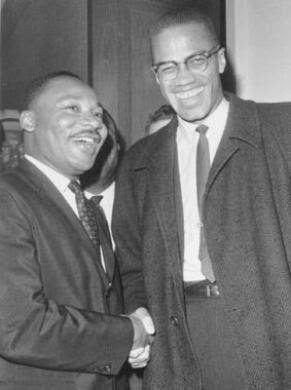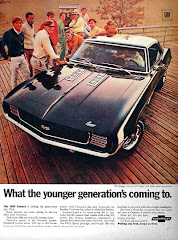Thursday, January 22, 2009
When Blogging Goes Bad....
A North Carolina entrepreneur blogs a warning to her industry -- and gets sued for her troubles.In January, Leslie Richard got a call from a man from Vision Media Television. The Boca Raton, Florida, TV production company wanted to know if Richard would agree to be interviewed for a documentary on eco-fashion. According to Richard, the caller implied that the film might air on PBS or possibly on CNN."I was nervous, but I was totally, like, Yeah -- I'll do it," says Richard. A TV appearance promised to be a huge PR boost for her two-year-old Asheville, North Carolina, company, The Oko Box, which sells clothing made of organic cotton, hemp, and bamboo. As talks progressed, however, Richard, 31, grew increasingly skeptical about the documentary. She says another Vision Media employee told her that Oko Box would be charged $22,900 to cover some production expenses, plus $3,000 for travel costs. Feeling "creeped out," Richard called the Better Business Bureau and posted a message about her experience on her company's blog. "Look alive small eco business owners," she wrote, " 'cause there is a new scam targeting us. Using television lingo, an entire team of people, a website, video footage, and a whole bag of lies to cover their scheme."As cathartic as this blog post may have been, it put Richard's business at risk. Anything posted on a CEO's blog -- including reader comments -- can be construed as carrying the weight of a company's endorsement, says Marc Zwillinger, an attorney in the Washington, D.C., office of Sonnenschein Nath & Rosenthal. When the production company threatened to sue Richard if she didn't take down her blog, she wrote: "Um, yeah VMT your scam is being posted & has already been reported, and your imaginary lawyers can't do anything about it."In July, Vision Media made good on its threat and filed a lawsuit in Florida against Richard and her company, asserting that the comments on Oko Box's blog had directly resulted in $5 million in lost business. The suit also asked the court to award Vision Media $15 million in punitive damages.Mark Miller, an executive producer at Vision Media, denies that his company claimed to work with PBS. He also says Vision Media has a good rating with the Better Business Bureau, contrary to a post published in the comments section of Richard's website. "We've lost a lot of business as a result of her blog," Miller says.After the initial shock wore off, Richard found a lawyer in Florida who was willing to work with her pro bono. At presstime in late September, Richard was close to a settlement with Vision Media, and she said she was prepared to take down the blog posts.Richard says the nine-month standoff could have been avoided if Vision Media had just said, "We're a video company that does advertorials; you can use it however you want, and this is how much it costs." Miller asserts that his company does, as a policy, mention fees in the first phone call and that Richard misunderstood the pitch. "Our presentation is crystal clear," he says. (PBS declined to elaborate on its statement concerning Vision Media.)As CEO blogs proliferate, so will the legal issues. "My sense is that she could have written her warning post in a more careful way," Godin says. "I want to push CEOs to be authentic on their blogs and to be selfless in trying to help readers. But they also have to understand that their words will be out there and widely seen. So they owe it to their stakeholders to act responsibly."
Wednesday, January 21, 2009
Can't Catch a Taxi? Here's Why...

Checker Motors Corp. stopped making taxicabs over two decades ago, but the company has soldiered on as a parts manufacturer. That ride has been detoured, though, as the company recently filed for Chapter 11 bankruptcy. The 87-year-old Kalamazoo company filed in U.S. Bankruptcy Court in Grand Rapids, Michigan on Friday, Jan. 16.Although Checker stopped production in 1982, the company still has 246 employees making metal stampings and welded assemblies for all of the Detroit 3. The filing makes Checker the seventh major U.S. supplier to file for bankruptcy protection in the past year, and the 54th this decade. Escalating raw material prices and dwindling sales for their customers' products were cited as the main reasons for the filing, but another big reason was labor costs. It's reported that a deal with unionized labor couldn't be reached even after a year of negotiations.
Tuesday, January 20, 2009
Monday, January 19, 2009
2009 Detroit Auto Show

Dodge Circuit EV
What is it?-This is an all-electric sports car (i.e. zero gasoline consumption, zero tailpipe emissions) with a 150-200 mile driving range, and performance of 0-60 in less than 5 seconds. Consider it Dodge's answer to the Tesla Roadster, and the polar opposite of the Dodge Viper GTS.
Cool Concept Feature-Can be powered up by plugging it into a household socket
Chances of it making it-Dodge insists this has a real chance of making it to dealerships.
Sunday, January 18, 2009
Caddys answer to the Chevy Volt

Cadillac Converj
What is it?-The best analogy we could make is that the Converj is the Cadillac version of the Chevrolet Volt, or as one GM executive put it, "the Cadillac of electric vehicles." Capable of achieving 40 miles of gas- and emissions-free electric driving with extended-range capability, the Converj has a silly name, but awesome potential.
What is it?-The best analogy we could make is that the Converj is the Cadillac version of the Chevrolet Volt, or as one GM executive put it, "the Cadillac of electric vehicles." Capable of achieving 40 miles of gas- and emissions-free electric driving with extended-range capability, the Converj has a silly name, but awesome potential.
Cool Concept Feature-No rearview or outside mirrors; cameras provide surrounding images on the instrument panel for a panoramic view.
Chances of it making it-If GM can find the money, you will see this car.
Saturday, January 17, 2009
First production Ford Thunderbird sells for $600k

When Ford Motor Co. introduced the 1955 Thunderbird,it became known as the first “personal luxury car” – a sleek two-seater that stood out in a sea of big station wagons, coupes and sedans. For a certain Orange County family, one of these automotive icons has been as much a part of the family as Mom and Dad. And while all 16,155 of the vehicles made that model year are considered precious, theirs is ahead of them all: It’s the very first production model. (The first production Thunderbird, VIN# P5FH- 100005, was owned by George Watts of Orange, California.)
Subscribe to:
Comments (Atom)









